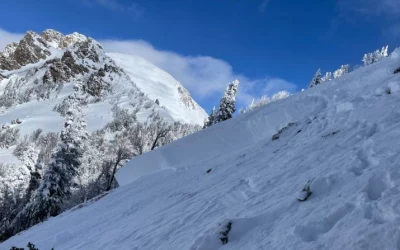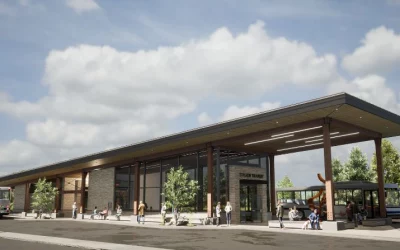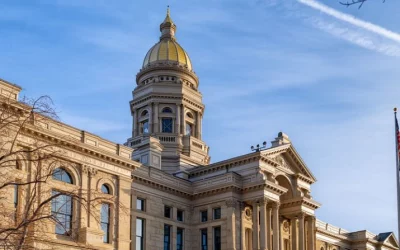Local officials mull special tax proposals
The Jackson Town Council and Teton County Board of Commissioners continued to narrow down their choices Monday for which Specific Purpose Excise Tax (SPET) options should go before voters this fall. The voter-approved 1% sales tax is paid by residents and visitors in Teton County to help fund community facilities, infrastructure and amenities that would otherwise require different revenue sources.
More than $230 million in proposals are still on the table for 2022, from a water quality master plan to fire station repairs and housing developments. Several of those proposals will have to be cut prior to asking the citizens what they want to fund. Speaking during Monday’s meeting, Councilman Jonathan Schechter said elected officials still need to do some soul searching to figure out what will make the final ballot.
“We have to address housing in a meaningful way. There’s no question about that. But that’s not the only issue facing the community,” Schechter said. “And so, when I talk about a holistic view, what I’m thinking about is how much of the total that we’re going to present to the voters is going to be put into housing? How much is going to go into the environment? How much is going to go into other areas?”
Several more meetings are still scheduled to take place before any final decisions are made, including some where public comment will be taken. More information about upcoming public meetings is available on the Town of Jackson website.
Gaming proposal considered for Hole Bowl
Gambling on horse racing could be coming to Teton County, according to the Jackson Hole News&Guide. A Gillette-based company wants to revive the old Hole Bowl, maintaining the alleys, a restaurant and a bar. But it also wants to add a gaming parlor where patrons could essentially use kiosks to bet on what’s called pari-mutuel races—no track required. The county board of commissioners seemed open to the idea Monday, with Greg Epstein (I) liking the potential for the plan to generate revenue and revive a once-thriving local business.
“Hole Bowl was a family-oriented community place where, you know, young kids get to have birthday parties and things like that,” Epstein said. “Now that Hole Bowl is going away for, you know, economic reasons, that opens up a gap in our community.”
However, Epstein and others don’t want to lose that family-friendly atmosphere because of the gaming parlor. The applicant company said it hopes to get a liquor license through the Town of Jackson and that it will keep the gambling section partitioned off for patrons over 21. The commission will vote June 7 on whether or not to approve the new permit, after which a number of other regulatory decisions would likely follow.
Conservationists challenge upcoming oil and gas lease sales
A group of 15 conservation organizations from Wyoming and across the nation have filed administrative protests challenging the Biden administration’s plans to resume oil and gas leasing on public lands as early as June. The advocates are calling for the president to end new leasing in order to protect communities, water and wildlife. Dan Ritzman with the Sierra Club said the move is critical for the administration to meet its own climate goals.
“One of the biggest single sources of greenhouse gases across the country is fossil-fuel leasing on our public lands,” Ritzman said. “So, to address climate change, we need to keep those fossil fuels in the ground [and] keep them from being burned.”
Lease sales set for June include 144,000 acres across eight Western states, with a majority of the acres located in Wyoming. Oil companies have repeatedly claimed that opening up more public lands for drilling can ease pressure on international supplies and lower gas prices.
Eric Galatas from the Wyoming News Service contributed to this report.
Jackson Vice Mayor Jorgensen responds to “overcrowding” criticism
A wide-ranging “Chat with Town Councilmembers” event Wednesday covered everything from concerns about environmental degradation in Jackson Hole to the new proposed rules for short-term rentals outside of the lodging overlays. Responding to a resident comment about “overpopulation and overtourism,” Vice Mayor Arne Jorgensen said some problems are absolutely real but there are also limits to what local officials can control.
“There is no villain here. We are all part of the problem, and I would suggest when we are stuck in traffic sometime this summer, look around at the license plates,” Jorgensen said. “There are a shocking number of license plates that are locals. It is not all the tourists.”
The informal chats with council members take place monthly, usually on the last Wednesday. The next regular meeting of the Jackson Town Council is scheduled for Monday, June 6.
Lawmakers seek better drought data
A new bill in the U.S. House of Representatives aims to expand the use of data to understand and manage water nationwide. In the midst of a historic drought, proponents of the Water Data Act say better information will be key to understanding how to keep water flowing. Congresswoman Melanie Stansbury (D-New Mexico) said the bipartisan bill aims to bring data together across different agencies.
“This will help to empower our communities, our farmers, and our local governments to use water data and tools to transform water management at the local level and across the West,” Stansbury said.
The act would create new national standards for water data and provide $25 million in grants for local water agencies to modernize their own data collection.
Locally, water managers are draining reservoirs in the Snake River basin to support interests downstream, according to the Jackson Hole News&Guide. Capacity is likely to be below 10% at both the Palisades and Jackson Lake reservoirs by September, and many boat ramps will remain out of the water all summer despite a wet spring.
Alex Hager from KUNC in Greeley, Colorado, contributed to this report.
Grand Teton National Park invests in native sagebrush
Grand Teton National Park will be working to restore sagebrush habitat in the area throughout the summer. The project will replace foreign grasses originally planted during the homestead era with native plants—a move that helps support animals like elk, moose, and bison, according to park officials.
The 200 acres set for refurbishment this season are located near Mormon Row and Spring Gulch Road. The ultimate goal is to return 4,500 acres to their former glory with help from Jackson Hole nonprofits. More than 1,000 acres have already been restored to date.
BLM solicits info on inaccessible parcels
A new portal from the Bureau of Land Management (BLM) allows people to view where public parcels across the country are inaccessible or very difficult to access. Many of those areas are located throughout Wyoming and the rest of the West and are also ripe for recreational opportunities.
A total of 8.3 million acres fall into the category of ‘inaccessible,’ according to the portal, meaning the land is surrounded on all or many sides by private property and thus challenging to get to. However, by prioritizing which parcels should be unlocked through the new web application, the BLM can go to Congress with a list for approval, and the most important areas—which should already be accessible by the public—will hopefully get fully unlocked.





